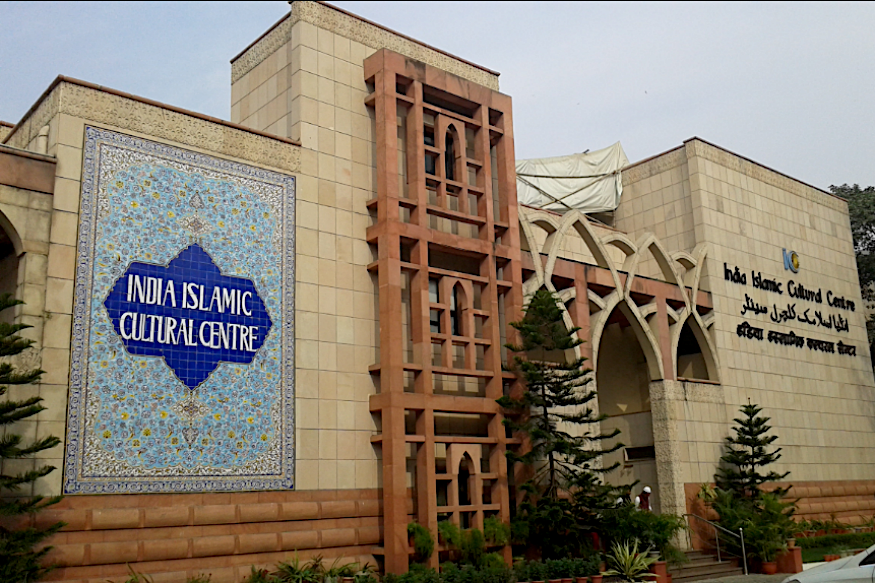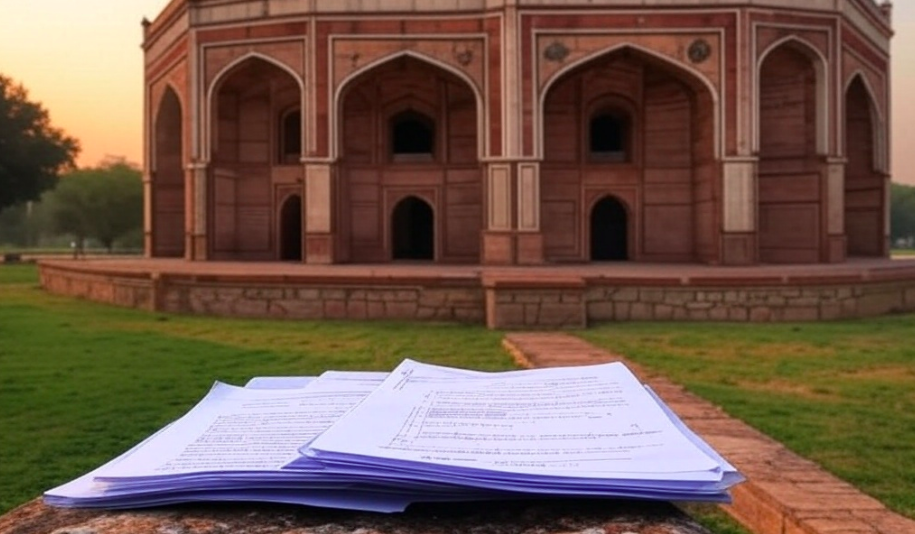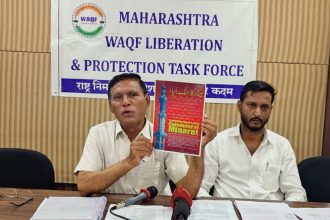By Badre Alam Khan
After many acrimonious debates and intense contestations, finally, the India Islamic Cultural Centre (IICC) elections result has been announced late evening on 8th Jan 2019.
Once again Sirajuddin Qureshi led panel managed to secure all the posts against Arif Mohammad Khan led panel with a big margin. Qureshi got 1,339 votes and Khan managed to get 702 votes.
On the one hand, Qureshi and his panel were backed by the young Congress leader Nadeem Javed, who is also ex-MLA from, Jaunpur constituency, U.P and Chairmen of All India Congress Committee Minority Department and other religious and social organizations.
On the other hand, Khan and his penal was supported by former Congress Union Minister Salman Khurshid (who was defeated last time by Qureshi on the post of President when he was cabinet minister during UPA regime) and Mohammed Adeeb former Rajya Sabha member.
It is fascinating to note that both the presidential candidates, Khan and Qureshi are somehow sympathetic towards the Modi government on various issues.
For instance, Khan had earlier given the resignation from the Rajiv Gandhi’s government on the matter of Shah Bano in 1986. And this time, it is ironical to underline that he has not opposed ‘Triple Talaq Bill’ when entire community and most of the political parties, ranging from Congress, left forces and regional parties have opposed the recent said Bill.
Besides, Khan is more vocal and often made a strong critique of the ‘fundamentalist forces’ and ‘Conservative Mullahs’ for keeping Muslim backward mainly through interpreting Islam in a very orthodox manner.
Similarly, there are views in the community that Qureshi is close to Modi. For instance, he has recently organized a meeting on the book ‘Exam warriors’ authored by the PM Narendra Modi at the IICC.
Unlike earlier, broadly speaking both presidential candidates have subscribed similar kind of political leaning and as a matter of fact, still close to the Modi led BJP government.
However, for the post of president including other posts, complex factors like caste, class, personality cult, political background, personal relationship etc could be said for having played some role to mobilize the voters during the election time rather than the political and social profile of the candidates.
Currently, 3214 members are associated with the IICC who have voting rights. Members are drawn from various fields like Education, Civil services, Businessmen, politicians, and Social and religious organizations.
Since the inception of IICC (late 1980), it is seen as a platform for conducting seminars, academic conferences and organizing public lectures concerning national and international issues. It is pertinent to note that the IICC was established by the initiative of Indira Gandhi [when the Hijra (Islamic Calendar) era turned into the 15th century, then Justice Hidayatuallah approached Smt. Gandhi to inaugurate the Institute] for promoting ‘communal harmony’ and ‘National Integration’. As the website of the IICC notes:
Ms Indira Gandhi (the then Prime Minister) was impressed by the idea of creating such Institute which would promote understanding among the different religion and help the cause of national integration; she was pleased to lay the foundation stone of this noble institution on 24th August 1984.
To be very precise, the IICC has been the centre for promoting the ‘interfaith dialogue’ by inviting different religious community leaders and thereby promoting ‘communal harmony’ amongst various communities.
Besides, the IICC was also provided opportunities for preparing the various exams for Muslims and non-Muslim young students mostly belonging to the socio-economic marginalized groups.
The main thrust of the centre is to conduct the programmes and activities from the lens of ‘Islamic ethics’ and teachings of the Prophet’s life. In short, the centre has earlier tried to give the ‘real Islamic’ teaching in the context of Indian society. To put it differently, the task of the centre is supposed to cherish the larger ‘Indian composite culture’ and civilizations and try to reconcile with Islamic culture, inscribed in the Islamic philosophy and teachings of the Prophet based on the Quranic Text.
Before coming to the IICC, let us understand the discourse on Islam in the larger public domain.
Historically speaking, the Orientalist reading of ‘Islamic theology’ and culture, (which broadly propagated Islam mainly from the perspective of a conservative and extremist lens) had have underlined that the progressive values like modernity, liberal democracy, and rationality etc are not compatible to Islamic theology.
However, unlike the Orientalist scholars like Samuel P Huntington and Bernard Lewis, if one could closely study the intellectual and academic engagement of Islam, as a noted scholar like Prof Edward S. Said had underlined that Islam is not fundamentally incompatible with rest of the society, culture and religions.
In short, it would be a mistake to think that ‘Islamic theology’ is essentially incompatible to the liberal and modern values. And therefore, it is western Orientalist scholars who have made propaganda about ‘Islamophobia’ in the western society.
In this backdrop, IICC’s objectives have underlined that it is the misconception that Islam and other cultures have unavoidable ‘cultural fault-lines’ as shown by the Orientalist scholars like Huntington and Lewis. It is not wrong to say that the colonial/Orientalist discourse about ‘Islamophobia’ is also subscribed directly and indirectly by the Hindu nationalist forces and championed by the conservative corporate-owned media in the context of India society.
To counter the colonial/orientalist and communal forces discourse around Islam, the objective of IICC should be now to spread the progressive teaching of ‘Islamic theology’ and its ethics and moral values mainly to promote ‘communal harmony’ and interfaith-dialogue among different communities.
This is to be noted that these points have been endorsed by the vision team saviour Group of IICC and reiterated by Khan in his talk during the interactions with members at JMI two days before.
While discussing the activities of IICC mainly in the areas of educations, research and promoting mutual understanding among different communities, training the students, providing scholarship and coaching to students who are coming from marginalized sections, Kaleemul Hafeez (Hilal) wrote a small booklet, titled ‘India Islamic cultural centre: a Dream Still to come True’ (2018, New Delhi).
In this booklet, he has highlighted the critical conditions of Indian Muslim and other Muslims across the world. In this booklet, Hilal says, ‘Muslims are standing in a critical point of their history not only in our country but worldwide. From Palestine to Syria, Yemen, Qatar, Iran, Afghanistan, Myanmar, Muslims are passing through very challenging and tough time’. (See Hilal, p-9)
Commenting about current Indian situations, Hilal writes, ‘In India the fascism planted in 1925 has grown into a huge tree today, laden with bitter fruit. The toxic effect of this fruit is evident all very the country in the form of mob violence, curbs on freedom of expression and fear of minorities’. (Hilal., P-10).
Besides, ‘Muslims are capable of participating in all socio-political and education activities in the world’s largest democracy. But it’s a tragedy that mainstream political parties have always ignored them’ argues Hilal (Ibid., P-17)
To note that IICC objectives are not supposed to promote any particular sects or Masalak. Its members include representatives of the different school of thoughts within the Muslim community and outside the community from varied backgrounds such as community think-tanks, senior civil servants, politicians, businessmen etc. as noted by Hilal.
In this respect, Hilal points out that the main objective of the centre is to spread the message of Islam and remove the misunderstanding by the organizing seminars, conferences and by establishing libraries.
The IICC’s founding members were committed to raise the minority issues related to education and development, focus on the problems confronted by minorities in this country, said Hilal.
Secondly, the centre also stands for protecting the fundamental rights of minorities as mentioned in the Indian constitution. Apart from this, the centre conducts programmes and promotes mutual cooperation among various religious minorities.
Finally, IICC should work hard for giving training and education to the students, according to Hilal.
While congratulating the elected members, community intelligentsia like senior journalist and editor of Nai Dunia and former Rajya Sabha member Shahid Siddiqui and others have said that it is the time to forget what happened during the election and work together for the progress of the community and the larger problems of the Indian society as outlined in the objectives of IICC.
While congratulating the elected members, young journalist Ahteshamul Hasan, currently staff at JMI also said that IICC must develop an effective media and research team for promoting and defending the real message of Islam and concerns of the Indian Muslim across the world.
In given context of Indian politics, it is not right time to go into the claims and counter-claims which were made during the election for instance, who can be the best candidates to serve and fulfil the objectives of IICC and work for the larger interest of the community.
Now, it is hoped that those candidates who have got elected this time on the post of the president, vice-president, board of Trustees and executive committees must work for the betterment of the entire community and larger cause of humanity according to objectives of IICC constitution and visions of founding members as outlined above.
I hope that newly elected members on the various posts will in coming a tough time, work according to the broad objectives of the IICC and represent the authentic image of Islam and Muslim Community at the global level in years to come.
(The author is a PhD candidate, University of Delhi. Views are personal.)









